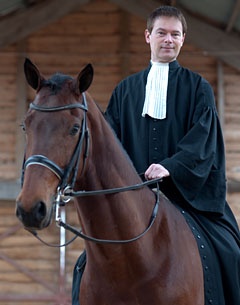
The act of having something legally seized raises many questions. It is often associated with financial inability, fraud and deceit. The reality is mostly different. My practice focuses on clients who believe they have a claim on someone else. I emphasize 'believe', because the court must ultimately determine whether the claim is valid. It is actually the same as in criminal law: everyone is innocent until proven guilty; until the criminal court has determined that the alleged fact is legal and convincingly proven.
A party that wishes to make any legal proceedings pending, can feel the need of some security. Litigations cost time and money and it would be sour if after obtaining the judgment the other party has no assets to obtain. Sure you can executorially have assets seized after the verdict and you may even sell private property of that person publicly, but if they don’t have anything to sell, there is nothing you can do. A bankruptcy will not offer much relief either.
This is why in some countries in Europe there is the possibility to seize assets precautionary before filing the claim with the court. This is a form of getting some security. Horses and ponies can also be seized, even when it’s still not certain whether you owe money or not. Such seizure has it’s necessary impact.
This disadvantage has an advantage though. Suppose that, without the precautionary seizure, you litigate for years, you win and there is nothing to claim at the other end. Alternatively, your claim could be rejected. Then everyone will conclude that the seizure has been unnecessary. Therefore, the law states that a precautionary constraint may be unlawful and the one who asked for the precautionary seizure has to pay the damages. The lawyer must act cautiously with this legal tool.
To seize something is simple. The lawyer sends a request to the Applications Judge and normally this is almost always granted. The authorization of this request is then sent to the bailiff who then start seizing the other party's assets.
The other party is not heard in this. This is logical, because otherwise the debtor may withdraw assets from his ownership to narrate it away from claim (for example put a horse in a different location). The seizure as to say ‘freezes’ the property that constraint is put on. The case must not disappear. This is actually a crime.
In other European countries, the use of the precautionary seizure does not exist. Here the creditor will have to wait for judgment, which gives the debtor sufficient time to narrate his possessions to escape confiscation. I believe this is not desirable. In that sense I am a supporter of this legal tool.
On the other hand I feel that too easily property is being seized. The content and substantiation of the claim are namely not tested. Also after assets have been seized it's almost impossible to get the seizure removed again, for example by means of a lawsuit. In my opinion this is where the law has a task to rule in favor of the debtor.
The European Committee has drawn up new rules that accommodate the introduction of EU-wide order to seize property. The rules, that still need the consent of the European parliament and members of state, should also make it easier for private persons to claim their money back from fraudulent sellers in other countries.
So, horse owners be warned! If you get in a conflict over an invoice, the risk of your horse being seized is lurking.
- by Stephan Wensing - www.paardenadvocaat.nl
Weda en Wensing Advocaten, a professional Dutch law corporation, is owned by renowned Stephan Wensing, a Dutch attorney whose practice is only focused on equine disputes. Stephan Wensing has been an equine attorney since 2002. As a horse owner, trainer and judge himself he combines his two passions: horses and law. Stephan recognized the need for an attorney with detailed knowledgeable in legal issues affecting equestrians. Wensing offers a full-service litigation firm that specializes in equine-related transactions and dispute resolution
throughout Europe.
Related Links
Legal Letter: Care Duty of Horse Transporters Much Larger than Thought
Legal Letter: Equine Lawyer Stephan Wensing on Latent Defects
Legal Letter: Your Duty to Investigate When Buying a Horse